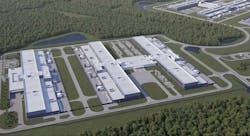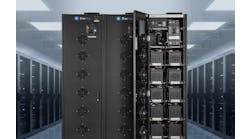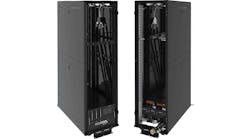Facebook Adds 1.5 Million SF of Data Centers in $1 Billion Georgia Expansion
Ho hum, another Facebook data center campus expansion. Right? There’s a temptation to receive the social network’s relentless growth as business as usual, as Facebook continues its “land and expand” campus strategy.
Resist the temptation, because these are MASSIVE projects. Facebook said today that it will invest $1 billion to add three huge data center buildings to its campus in Newton County, Georgia. The construction project will add 1.5 million square feet of capacity to the campus, which broke ground and is scheduled to open its first phase this year.
It’s a reminder of the growing impact of hyperscale computing, and the industrialization of how data center capacity is deployed. That includes the provision of energy. Facebook has helped enable six new solar projects in Georgia for a total of 435 megawatts of renewable energy. In 2019 the company provisioned green power equivalent to 89 percent of its operations, and intends to hit 100 percent this year. This week Facebook announced that it intends to reach net zero emissions for its entire supply chain by 2030.
The project also continues the emergence of the Southeast as a destination for hyperscale capacity, a trend Data Center Frontier first noted in 2016, when Google stepped up its plans to concentrate more data centers in the region. At the time, the prevailing hyperscale model employed large data center hub in three regions – one on the East Coast, one on the West Coast, and one in the center of the country. This market coverage ensures good latency on traffic to most U.S. destinations, with the coastal data hubs also serving traffic to Europe and Asia.
Google charted a different course, creating campuses in South Carolina, Alabama and Tennessee in addition to Atlanta. Since 2018, Facebook has added campuses in Georgia and more recently near Nashville.
Meanwhile, Greater Atlanta has emerged as the data center capital of the Southeast, with new projects from Switch, QTS Data Centers, DataBank, Flexential and STACK Infrastructure, as well as the Facebook expansion.
For all that activity, the arrival of a $1 billion data center construction project and 200 jobs in the middle of a pandemic and economic crunch is worth noting. Nothing ho hum about it.
For more details, see Facebook’s announcement.






